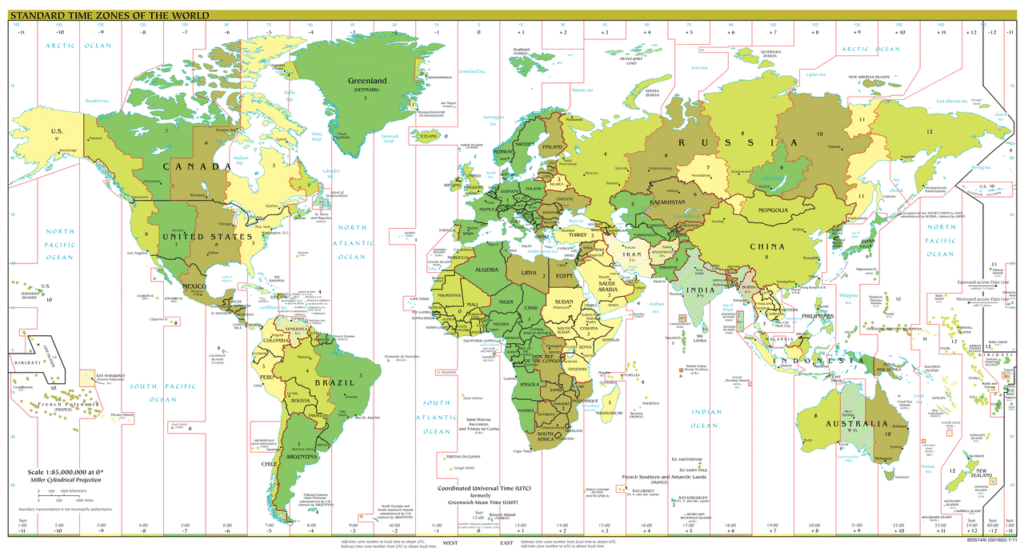Istanbul is a city unlike any other. It spans two continents and bridges cultures from Europe and Asia. The Istanbul time zone is unique for many reasons, blending ancient traditions with modern life.
This physical and cultural positioning has also influenced the way time is measured, regulated, and experienced in the city.
Today, Istanbul operates on Turkey Time (UTC+03:00) throughout the year. Arriving at this arrangement involved centuries of changing customs and government policies.
In this article, we will explore how Istanbul’s time zone evolved, what makes its current arrangement unique, and how travelers and residents can make the most of the city’s temporal rhythm.
Understanding the Istanbul time zone helps visitors and locals adapt more smoothly.

From Solar Time to the Istanbul Time Zone
During the Ottoman period, Istanbul’s concept of time was shaped by the “alla turca” solar time, which was set according to the prayer times of mosques.
As railroads and telegraph lines became widespread with the Industrial Revolution, regional time differences began to cause confusion.
In the early 20th century, the Ottoman Empire switched to a national time system; in the Republican era, Eastern European Time (UTC+02:00) was adopted to synchronize with Europe.
In 2016, the government decided to permanently switch to UTC+03:00 (nowadays Istanbul Time Zone) to eliminate the complexities of daylight saving time, so the city moved three hours ahead throughout the year.
Early Experiments with Daylight Saving Time
Like many countries, Turkey experimented with daylight saving time (DST) during the 20th century. The government first introduced DST in 1940 to save energy during World War II and used it intermittently through the 1960s and 1970s.
When DST was in effect, clocks advanced one hour in spring, placing the country on Eastern European Summer Time (UTC+03:00), and shifted back to UTC+02:00 in autumn. Schedules often aligned with Europe, but Turkey occasionally delayed switching to avoid conflicts with important events such as university entrance exams.
Debates about DST centered on whether it actually reduced electricity consumption and how it affected sleep patterns and productivity. In 2008, the Ministry of Energy even proposed a half‑hour time zone (UTC+02:30), but the idea was not adopted.
The 2016 Shift to Permanent UTC+03:00
The most significant recent change came in 2016, when the Turkish Cabinet decided to scrap daylight saving time altogether.
Instead of switching between UTC+02:00 in winter and UTC+03:00 in summer, Turkey would remain on UTC+03:00 all year. This decision effectively made the former summer time permanent.
Officials argued that longer daylight in the evening would benefit productivity and quality of life, reduce energy consumption, and eliminate the confusion of clock changes.
Critics worried about darker mornings in winter and increased time differences with European partners, but in 2018 the government reaffirmed the policy.
Today, Istanbul and the rest of Turkey stay three hours ahead of Coordinated Universal Time (UTC) year‑round.
Technical Designation: Europe/Istanbul
In computer systems, time zones are defined by the IANA Time Zone Database.
Istanbul’s zone is designated as Europe/Istanbul. Although most of Istanbul lies on the European side of the Bosphorus, the country’s capital Ankara is in Asia, so the naming convention can cause confusion.
The important point is that the identifier links software applications and servers to the correct UTC offset and rules.
Since 2016, Europe/Istanbul has been fixed at UTC+03:00 with no daylight saving transitions.
Understanding this designation helps businesses, developers, and travelers coordinate schedules, appointments, and digital systems without errors.
Impacts of the Istanbul Time Zone on Daily Life
The Istanbul time zone (UTC+03:00) influences daily life in many ways. Maintaining UTC+03:00 year-round has several effects on everyday routines.
In winter, sunrise occurs later; dawn can be after 08:30, meaning that school and work often begin in darkness. However, evenings remain light longer, extending social activities and commerce.
The five daily Islamic prayer times, which depend on the position of the sun rather than the clock, adjust accordingly. For example, the dawn prayer (fajr) moves later in the clock day during winter, while the sunset prayer (maghrib) moves later during summer.
Public transportation timetables, business hours, and broadcast schedules remain consistent throughout the year because there is no clock change to account for.
Travel Tips for Visitors: Navigating the Istanbul Time Zone
Knowing the Istanbul time zone simplifies planning for travelers. When journeying from Western Europe, the time difference between Istanbul and London is two hours in summer (London UTC+01:00) and three hours in winter (London UTC+00:00). From New York, Istanbul is seven hours ahead during the U.S. summer and eight hours ahead in winter. Adjust your watch or smartphone as soon as you arrive to minimize jet lag.
Since the Istanbul time zone stays on UTC+03:00 year-round, flights departing for destinations that observe daylight saving may appear to arrive at odd hours relative to local time. Always double-check departure and arrival times. Additionally, major tourist attractions follow daylight hours. Sites such as Topkapı Palace, Hagia Sophia, and the Grand Bazaar generally open around 09:00 and close by early evening, but hours may change during winter when sunset is earlier. For more information on organizing your museum visits and attractions, explore our Museum Pass Istanbul page.
Business and International Coordination with the Istanbul Time Zone
Istanbul’s fixed time zone benefits companies working with partners in the Middle East and Russia, since many of those countries also use UTC+03:00 year‑round. However, coordinating with European countries can require additional planning. When Germany and France observe Central European Time (UTC+01:00) in winter and Central European Summer Time (UTC+02:00) in summer, the time difference with Istanbul is two hours or one hour, respectively. Businesses should clearly state meeting times with the time zone included, for example, “13:00 TRT (UTC+03:00),” to avoid confusion. Tools like world clock apps and calendar software can automatically convert times, but manually confirming the differences remains good practice.
Why the Istanbul Time Zone Decision Matters
The abolition of DST in Turkey reflects broader debates about how societies organize time. Proponents say that avoiding clock changes reduces health risks, improves sleep quality, and cuts administrative costs. The change aligns Turkey with neighbors in the Middle East, which may help regional cooperation. Detractors argue that later winter sunrises are inconvenient and that the policy puts Turkey out of step with European markets. Despite occasional discussions about reinstating DST, the Turkish Government has remained committed to the current system. Whether Turkey will adjust its time policy again remains to be seen, but for now, Istanbul’s clocks stay steady.
Adapting to Istanbul Time Zone Differences
Travelers and professionals often ask for practical guidance on adjusting to Istanbul time, particularly when arriving from distant time zones.
A general rule is to begin shifting your sleep schedule several days before travel. If you are traveling eastward – for example, from North America – try going to bed and waking up earlier in the days leading up to your flight.
Once you arrive in Istanbul, spend time outdoors during daylight hours to help reset your circadian rhythm. Exposure to natural light, especially in the morning, encourages your body to align with the local day–night cycle. Limiting caffeine and heavy meals late in the day can also ease the transition.
Business travelers should schedule important meetings after giving themselves a day or two to acclimate; this reduces fatigue and improves performance. If you use medication for sleep or alertness, consult a healthcare professional about the appropriate timing when crossing multiple time zones.
Another helpful tip is to use technology wisely. Many smartphones and laptops automatically update their clocks based on your location. However, double‑check that your devices are set to change time zones automatically; otherwise, you might miss appointments or alarms.
Apps like world clocks, meeting planners, and flight trackers can display multiple time zones simultaneously, enabling you to coordinate with colleagues abroad. When arranging events, clearly specify the time zone in invitations, for example, “Webinar at 15:00 Istanbul time (UTC+03:00).” This clarity prevents misunderstandings and ensures everyone logs on at the correct moment.
Istanbul Time Zone Differences with Nearby Countries
Understanding the time difference between Istanbul and its neighbors is important for regional travelers and businesses. Greece, Bulgaria, and Romania follow Eastern European Time (UTC+02:00) in winter and switch to Eastern European Summer Time (UTC+03:00) in summer.
This means that for roughly half the year, Istanbul and its western neighbors share the same clock, while for the remainder Istanbul is one hour ahead.
Countries further west, such as Italy, Germany, and France, observe Central European Time (UTC+01:00) and Central European Summer Time (UTC+02:00), creating one‑ or two‑hour gaps.
To the east, Iran operates on Iran Standard Time (UTC+03:30) with no daylight saving, putting Tehran half an hour ahead of Istanbul. Georgia and Azerbaijan use UTC+04:00 year‑round, meaning they are one hour ahead of Turkey.
Being aware of these differences can simplify travel itineraries and help companies schedule cross‑border logistics without delays. In the context of digital marketing, timing social media posts or email campaigns to match audience peak hours in neighboring countries can improve engagement and conversion rates.

External Resources and Further Reading
If you would like to delve deeper into Istanbul’s timekeeping history and current policies, consider exploring the following resources:
- The website Timeanddate.com provides up‑to‑date information on time changes, sunset and sunrise times, and daylight saving practices around the world. It confirms that Turkey currently observes Eastern European Summer Time (UTC+03:00) all year and has abolished DST.
- The Wikipedia article on “Time in Turkey” provides a detailed overview of historical and contemporary timekeeping in Turkey, including the adoption of UTC+03:00 as the IANA time zone identifier and past debates over daylight saving.
These references can help clarify any remaining questions and provide context for how Turkey’s decisions fit into global timekeeping trends.
Conclusion
Istanbul’s time zone tells a story about more than just numbers on a clock. It reflects the city’s role as a bridge between continents and eras, as well as the evolving needs of its people and government.
From the Ottoman practice of setting clocks by sunset to the modern choice of staying on UTC+03:00 year‑round, time in Istanbul has adapted to technological advances, economic pressures, and cultural values.
For residents, the current arrangement provides consistency and longer daylight in the evening, while for travelers and businesses it offers a clear understanding of when to call, meet, and explore.
Whether you are watching the sunrise over the Bosphorus or scheduling a video conference with someone across the globe, keeping the Istanbul time zone in mind helps you navigate the city’s schedule with ease.
The Istanbul time zone remains three hours ahead of UTC throughout the year, ensuring that you can synchronize your plans with confidence.
Understanding and respecting the Istanbul time zone will help you plan seamlessly, stay connected to local rhythms, and maintain smooth global interactions.
